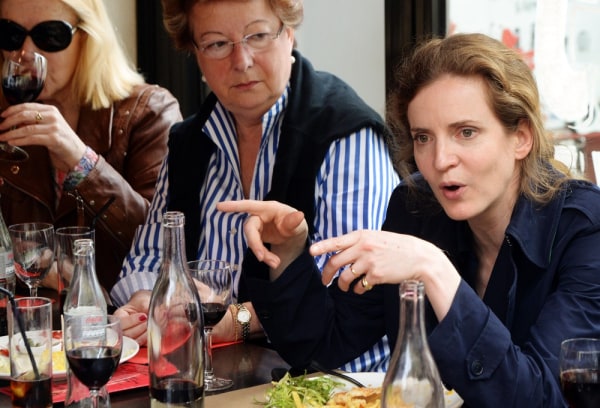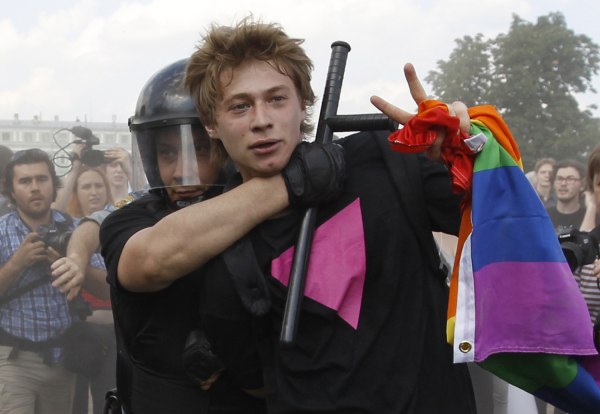The federal government is hiring what it calls a "Behavioral Insights Team" that will look for ways to subtly influence people's behavior, according to a document describing the program obtained by FoxNews.com. Critics warn there could be unintended consequences to such policies, while supporters say the team could make government and society more efficient.
While the program is still in its early stages, the document shows the White House is already working on such projects with almost a dozen federal departments and agencies including the Department of Health and Human Services and the Department of Agriculture.
"Behavioral sciences can be used to help design public policies that work better, cost less, and help people to achieve their goals," reads the government document describing the program, which goes on to call for applicants to apply for positions on the team.
The document was emailed by Maya Shankar, a White House senior adviser on social and behavioral sciences, to a university professor with the request that it be distributed to people interested in joining the team. The idea is that the team would "experiment" with various techniques, with the goal of tweaking behavior so people do everything from saving more for retirement to saving more in energy costs.
The document praises subtle policies to change behavior that have already been implemented in England, which already has a "Behavioral Insights Team." One British policy concerns how to get late tax filers to pay up.
"Sending letters to late taxpayers that indicated a social norm -- i.e., that '9 out of 10 people in Britain paid their taxes on time' -- resulted in a 15 percent increase in response rates over a three-month period, rolling out to £30 million of extra annual revenue," the document reads.
Another policy aimed to convince people to install attic insulation to conserve energy.
"Offering an attic-clearance service (at full cost) to people led to a five-fold increase in their subsequent adoption of attic-insulation."
Such policies -- which encourage behavior subtly rather than outright require it -- have come to be known as "nudges," after an influential 2008 book titled "Nudge" by former Obama regulatory czar Cass Sunstein and Chicago Booth School of Business professor Richard Thaler popularized the term.
The term "nudge" has already been associated with the new program, as one professor who received Shankar's email forwarded it to others with the note: "Anyone interested in working for the White House in a 'nudge' squad? The UK has one and it's been extraordinarily successful."
Richard Thaler told FoxNews.com that the new program sounds good.
"I don't know who those people are who would not want such a program, but they must either be misinformed or misguided," he said.
"The goal is to improve the efficiency and effectiveness of government by using scientifically collected evidence to inform policy designs. What is the alternative? The only alternatives I know are hunches, tradition, and ideology (either left or right.)"
But some economists urge caution.
"I am very skeptical of a team promoting nudge policies," Michael Thomas, an economist at Utah State University, told FoxNews.com.
"Ultimately, nudging ... assumes a small group of people in government know better about choices than the individuals making them."
And sometimes, he added, government actually promotes the wrong thing.
"Trans-fats were considered better than saturated and unsaturated fats in the past. Now we know this is an error."
Every intervention would need to be tested to make sure it works well, said Harvard economics professor David Laibson, who studies behavioral economics and is in touch with the people in government setting up the program. He added that the exact way the team will function is currently unknown.
"We have to see the details to be sure, but this could work out very well," he said.
Asked about details, Dan Cruz, spokesman for the U.S. General Services Administration (the department which the team will be a part of) told FoxNews.com: "As part of the Administration's ongoing efforts to promote efficiency and savings, GSA is considering adding some expertise from academia in the area of program efficiency and evaluation under its Performance Improvement Council."
Maya Shankar did not respond to questions.
Laibson added that he hoped the U.S. program would stay away from overly controversial subjects.
"Let's say we want people to engage in some healthy behavior like a weight loss program, and then start automatically enrolling overweight people in weight loss programs -- even though they could opt out, I'm guessing that would be viewed as offensive ... a lot of people would say, 'I didn't ask for this, this is judging who I am and who I should be."
But Laibson added that there are very real benefits to some "nudge" policies -- such as one that increases the number of people registered as organ donors by making people decide when they apply for a drivers' license.
Thaler, who is also an adviser to the British Behavioral Insights Team,
said that his research
also supports automatically enrolling people in retirement savings plans.
"Many people have struggled to save enough to provide for an adequate retirement. ... Two simple design changes can dramatically improve the situation ... automatic enrollment (default people into the plan with the option to easily opt out) and automatic escalation, where workers can sign up to have their contributions increased annually," he said.
Jerry Ellig, an economist at the Mercatus Center, said that some "nudges" are reasonable, but warned about a slippery slope.
"If you can keep it to a 'nudge' maybe it can be beneficial," he added, "but nudges can turn into shoves pretty quickly."



 also supports automatically enrolling people in retirement savings plans.
also supports automatically enrolling people in retirement savings plans. 






